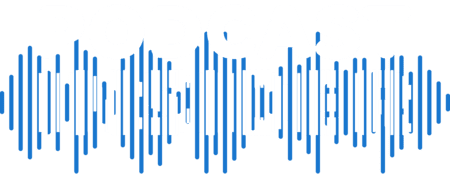In case the benefits of podcast transcription aren’t readily apparent, we’re going to walk through a few considerations. But let’s start with your goals as a podcaster. Ultimately, it’s likely something along the lines of sharing your unique point of view with people who find it interesting and/or beneficial. A secondary objective (which is actually a possible result of the first goal) is to maximize revenue potential. With those two end points in mind, the next questions are strategic: where do you want to “play” and how do you want to win? Leveraging podcast transcription might be a great way to win.
Share out snippets and soundbites of your podcast.
Let’s face it: audio is amazing, but getting people to click an audio link is only going to appeal to a certain percentage of your potential audience for a particular use case. You’ve got to get them hooked first. Yes, you should absolutely have podcast shownotes available. But those don’t always have a promotional angle right off the bat. That’s where podcast transcription comes in: you can share out the most tantalizing snippets and leave people wondering and wanting more.
SEO benefits.
Yes, Google is indexing audio and video files, but text still reigns supreme (for now). While there are many factors involved in a solid podcast SEO plan, a key one under your control is on-page content. That’s the combination of words, pictures, and other media you put on your website. Search engines crawl your page to determine what it’s about so that when someone searches, those same search engines know where to find relevant content and serve up a link to the searcher. There’s a lot more to it, but that’s the gist. And transcribing your podcast makes it that much easier to turn your podcasts into blog posts (on-page content) that are keyword-rich. To make podcast transcription even easier, Blubrry has partnered with Audioburst, an industry-leading audio transcription and sharing service. Best part? It’s free for Blubrry Podcast Hosting customers. Yeah. Free.
Consumption-side considerations
Sometimes, listening to a podcast is simply not the best option. And, in the interest of making it as easy as possible for as many people as possible to consume your content, options other than audio are probably a good idea.
Let them ponder
A NYT article examining the benefits of audiobooks vs. print concluded that “Print may be best for lingering over words or ideas, but audiobooks add literacy to moments where there would otherwise be none.” For podcasters, this might mean that if your audience wants to ponder an idea for a while longer, give them the option to read.
Make it quick
Audio podcasting can be a great, immersive experience–we’ve all felt it, getting lost in the story, being moved to another place in our minds. But, sometimes, we need info and we need it quickly. Maybe we simply don’t have enough time to focus on a linear audio podcast; maybe we want to figure out what the podcast is about before we commit to listening. Either way, skimming/reading is faster than listening. Transcribe your podcast and you make it skimmable for the use cases where that’s preferable to diving in ears first.
The good news is, podcast transcription has never been easier. There are plenty of paid audio transcription services available and they run the gamut from awful to amazing, with price points all over the board. Google is your friend if you’re curious. But, if it’s something you’re considering, you might want to check out Blubrry + Audioburst: it’s free for Blubrry customers, and does way more than simply and quickly transcribing your podcast.





